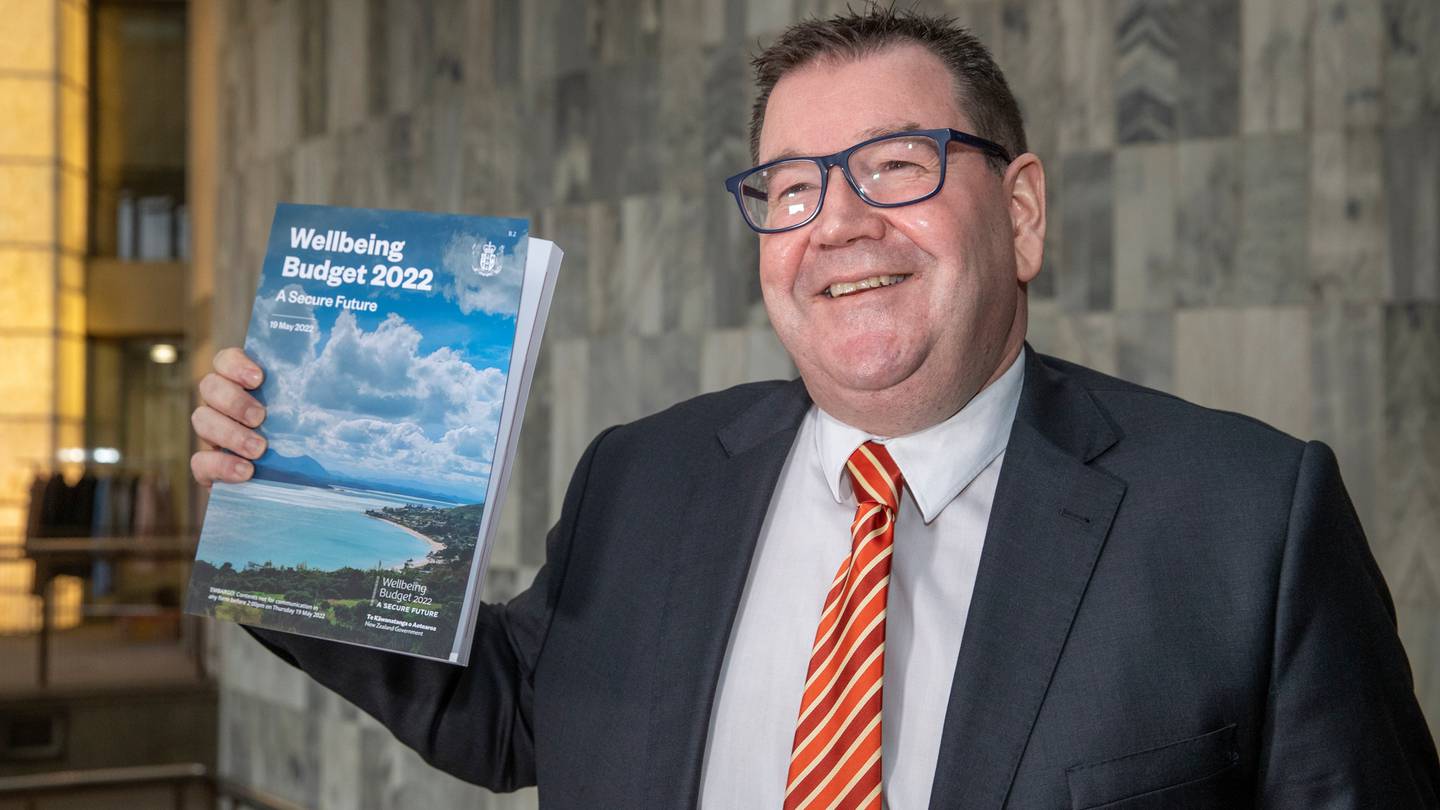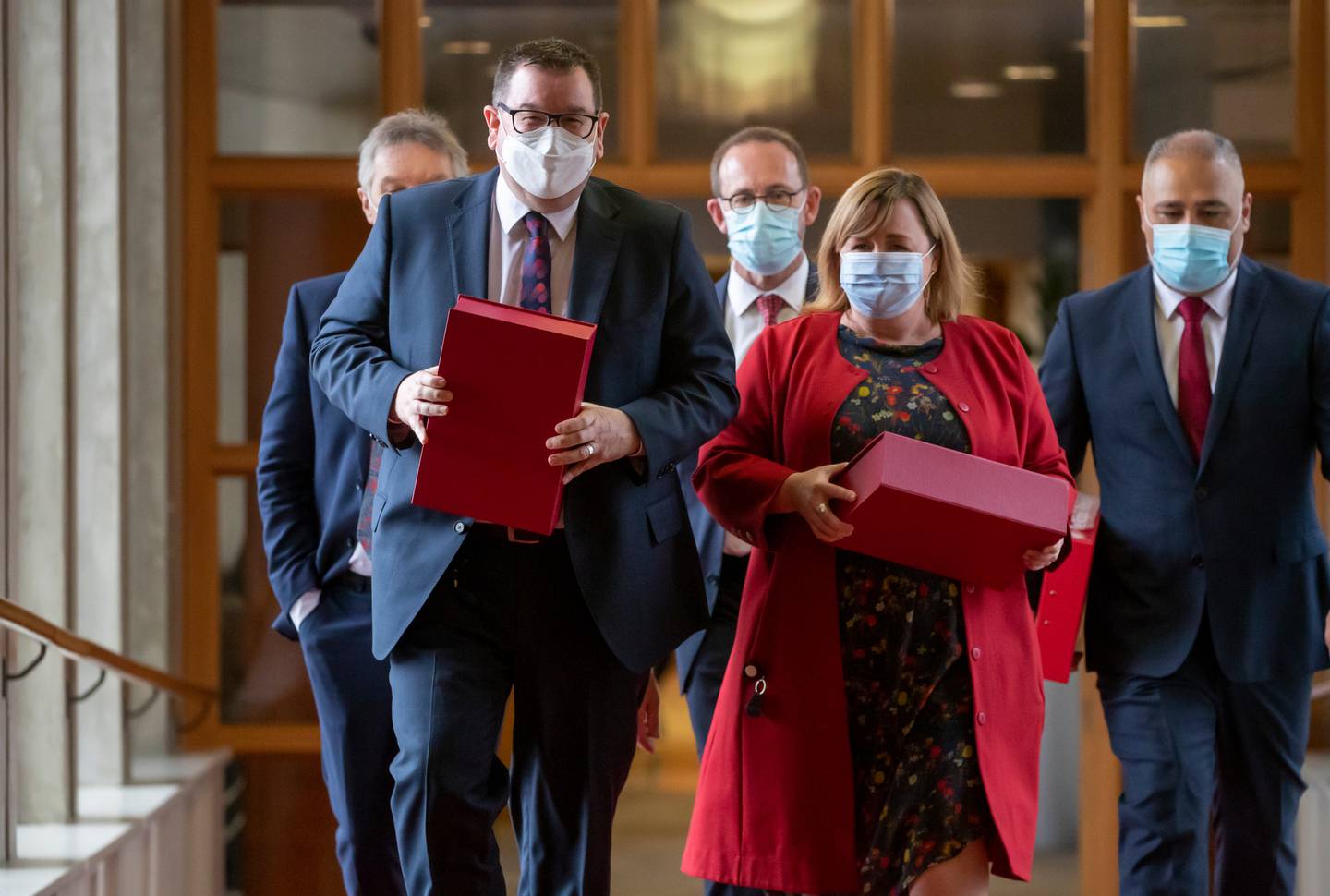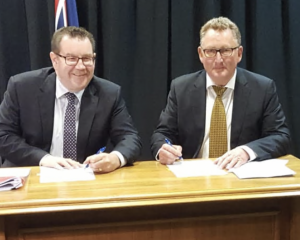
Treasury warned Govt more tax might be needed, cautioned Robertson against increasing spending
Finance Minister Grant Robertson was warned by Treasury that increasing spending too much in this Budget and subsequent budgets would exacerbate inflation. He was advised to keep his spending allowances unchanged - advice he accepted.
Treasury actually advised against slightly cutting the level of spending in the 2022 Budget, saying it was unlikely to have a significant impact.
In December 2022, Robertson announced the 2022 Budget would include $6 billion in new operating (day-to-day) spending.
Following this, the world experienced a severe inflation shock, which led to calls for the Government to cut spending to take pressure off the economy. In a briefing from March 3, officials looked at how to manage inflation risks in the Budget.
Treasury recommended against a small cut of $500 million from the allowance, saying it would be ineffective. However, it strongly cautioned against more spending.
"... we consider that announcing a Budget operating package of, for example, $5.5 billion per annum (a reduction of $500 million from the current allowance) may not be enough of a contraction to have a noticeable impact on the economy.
"To this end, we recommend managing your Budget 2022 package to ensure you do not exceed the $6 billion operating allowance that has already been signalled," officials said.
Officials gave Robertson a stern warning to stay within his spending allowance and advised him to run a contractionary fiscal policy - meaning the Government would suck more money out of the economy than it injected in stimulus.
"We strongly recommend keeping within your current Budget 2022 operating allowance.
"Although this allowance will not be sufficient to fund all of your priorities, we recommend you consider deprioritising new initiatives to stay within the $6 billion per annum signalled at the Budget Policy Statement 2022. You could also consider deferring initiatives to future Budgets, but this may put pressure on future allowances," Treasury said.
Treasury said this would require "significantly constraining spending growth" in the medium term, unless "your revenue strategy is adjusted to maintain a higher level of tax revenue-to-GDP in later years". This would probably mean finding new taxes to leave spending as a share of the economy higher over the long term.
Treasury also warned the effects of inflation would hit the Government too, leaving less money aside to fund new projects because all funding would need to go towards managing the increased cost of delivering the same existing services.
Treasury suggested inflation would make it "highly challenging" to control spending in Budget 2023-25 unless these were "cost-pressure only" Budgets.
Treasury said that fiscal policy was expected to turn contractionary in the next year, and gave Robertson some support for his proposed social unemployment insurance scheme, saying it would help the Government manage the economic cycle in the future and help grapple with inflation
This is because the scheme would work like a tax during boom periods of inflation and operate as stimulus during contractionary periods of deflation.
Treasury also advised in favour of tightening requirements for the Government's business support for Covid.
"We also consider it would be advantageous to tighten the eligibility requirements of existing firm support to ensure it is well targeted at those otherwise viable firms that are badly affected by the current outbreak," he said.
Treasury warned that a "significant number" of Labour's manifesto commitments "remain unfunded", which could be a problem given Labour has just one budget before the election.
Officials said this could put pressure on future Budgets - Labour has just one more Budget before the election.
Advice released today showed officials advised the Government to trim $300m from its health package.
Ministers sought $64b in new Budget spending
Ministers submitted more than 560 budget bids for the 2022 Budget, totalling $64 billion in operating spending and $9.2b in capital spending over the forecast period, according to budget documents released today.
Finance Minister Grant Robertson had to whittle those bids down to fit his $6b annual operating allowance for the four-year forecast period.
Every year, the Finance Minister invites bids for Budget funding. These are always well in excess of what the Government can actually fund and deliver. Ministers then trim these down to the initiatives that actually get funded in the Budget.
Robertson wrote to ministers saying the 560 bids were "far beyond the funding available and has required me to make early decisions to allow for an effective Budget process".
He asked ministers for help in reducing the number of bids down to a more manageable level.

Government warned payment would go to people overseas, deceased, and earning over $100k, Treasury fears it will be extended
Ministers were warned from the beginning the cost of living payment would be paid to deceased people, people overseas and high-income households.
In a paper from March 25, the earliest Budget paper on the payment, officials also warned there would be pressure to extend the payment or to renew it and that there was a risk people would structure their incomes to claim the payment.
The Government was moving so fast to deliver the payment, and was so unsure about how much it would cost, that ministers asked for an extra $53m in wriggle room just in case it went over its estimated budget.
"Inflation is expected to be widespread and persistent. This makes a one-off payment a poor mechanism for supporting households with a longer-term problem.
"Inflation being persistent may make it harder to ensure this payment remains a one-off occurrence," Treasury warned.
Treasury recommended "caution with progressing such a significant policy in accelerated timeframes", saying there were "significant risks associated with designing this proposal at speed".
Treasury warned of a "small risk that the payment may be paid into the bank accounts of some people who are deceased, as IR does not always have immediate access to the data on who is deceased".
Treasury also said that some people receiving the payment would not have their eligibility criteria finalised until March 2023. It has emerged that 800,000 people expected to be eligible for the payment have not yet claimed it.
Officials said the payment was "not tightly focused on households with lower incomes".
"Preliminary distributional modelling shows that around a quarter of the payments will go to households with incomes in the top 30 per cent," officials said - these are households with a joint income of more than $100,000.
Advice said that because cost of living was leading to an "increase in hardship for a large number of lower-income households", but that the payment was "unlikely to be the best way to provide of support to those who are struggling the most".
"The proposed payment is not well targeted and would end up supporting a significant proportion of higher income households," Treasury said.
Elsewhere in the same paper, Treasury warned inflation would also hurt the Government's ability to deliver core services whilst keeping to its fiscal strategy - things like the Government's debt target, revenue levels and spending levels.
"Higher inflation will increase the cost of delivering government services. This will put pressure on your ability to deliver services that meet public expectations while achieving your medium-term fiscal strategy," Treasury said.
In a later paper, from April 6, officials told the Government it estimated the payment would cost $747.6m, but $800m will be sought from Cabinet because the estimated cost is subject to some uncertainty".
Officials also warned some people might "rearrange their incomes on their tax return to just below the income cap" just to claim the payment.
"We are unable to estimate this risk; however, those returns would be subject to normal integrity checks as part of the year end assessment," officials warned.
Treasury worried about 'uncertainty' over health reform costs
Papers released today also detail discussions about the $13.2b multi-year health package, with officials warning of "uncertainty" around the reforms and risks of "both upside and downside surprises".
A transitional package for the new Health NZ, replacing the country's network of 20 DHBs, and the Māori Health Authority over the next four years included $11.1b to address cost pressures and $2.1b on new services, which Robertson called at the time a "record" spend for the sector.
Health Minister Andrew Little said a $1.8b boost this Budget, and $1.3b locked in the following year, would go towards ensuring the new health entities "have a clean start".
Little said providing multi-year funding certainty was designed to change up the old system, that saw the 20 DHBs run deficits in 12 of 13 years since 2008, racking up deficits of more than $3.5b.
A Treasury briefing on March 28 warned of budgeting uncertainty in transitioning to the new health system.
"There is considerable uncertainty about the non-discretionary costs of running the health system in the next two years, with potential for both upside and downside surprises."
In July 2021, Robertson and Little agreed to introduce multi-year funding arrangements health from Budget 2024, preceded by a two-year transitional arrangement at Budget 2022.
Officials also advised the health system would likely need the full "$1.8 billion as provided for at the upper end of the planning parameters", which was ultimately agreed for 2022.
Officials advised the multi-year arrangement while giving certainty for better planning, could also "appear at odds with Minister's commitment to fully fund the new system, and runs the risk of HNZ viewing this as a lack of trust".
The approach would need "careful communication to emphasise Ministers' continued commitment to fully fund the health system, and reiterate that the contingency is about buying time to resolve some of the uncertainty about how much funding is needed to do that".
However, officials ultimately advised they were "satisfied that the change is safe enough to go ahead as planned, and that it will generate a better balance of risk and reward than alternative options available to Ministers".












